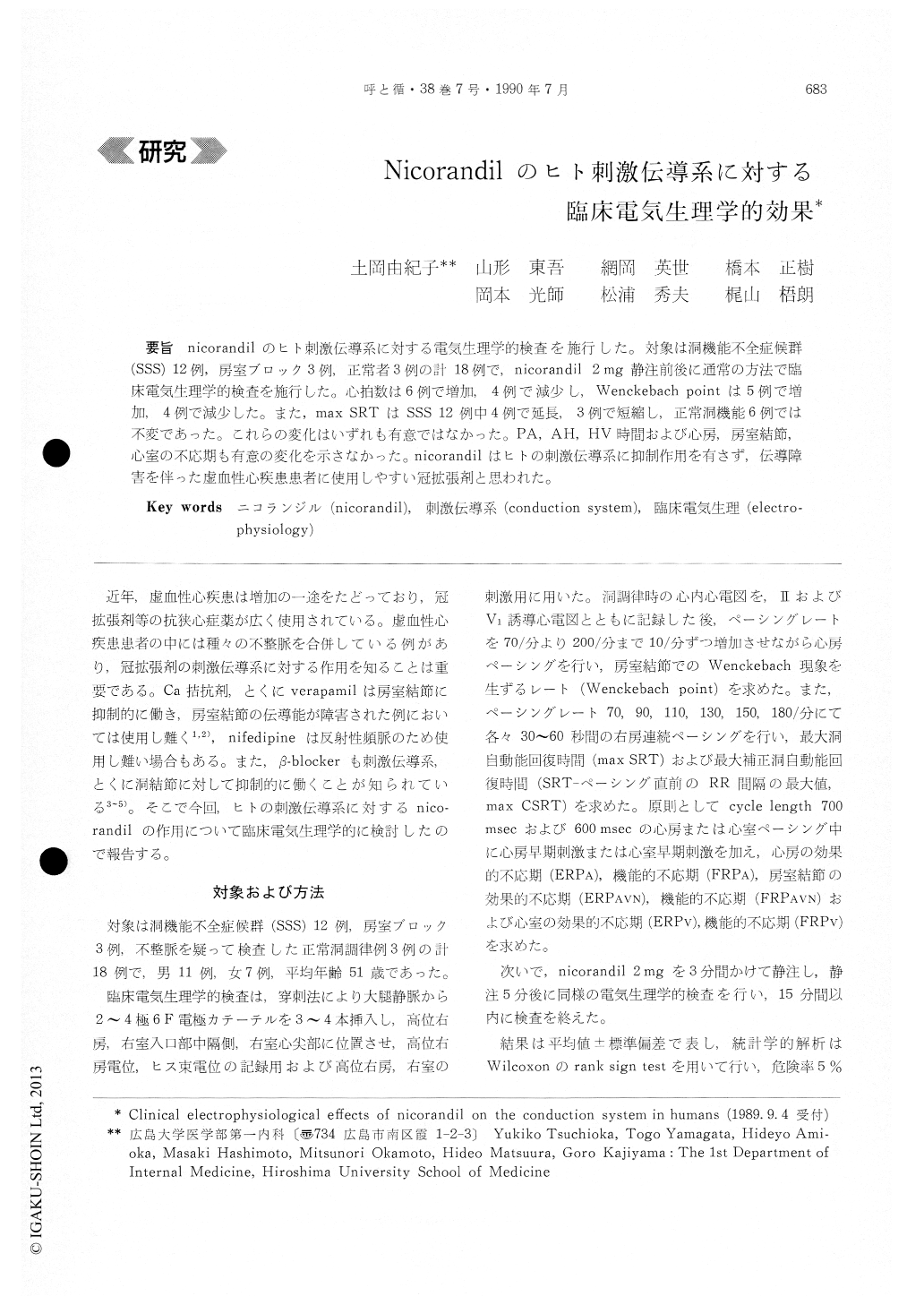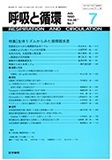Japanese
English
- 有料閲覧
- Abstract 文献概要
- 1ページ目 Look Inside
nicorandilのヒト刺激伝導系に対する電気生理学的検査を施行した。対象は洞機能不全症候群(SSS)12例,房室ブロック3例,正常者3例の計18例で,nicorandil 2mg静注前後に通常の方法で臨床電気生理学的検査を施行した。心拍数は6例で増加,4例で減少し,Wenckebach pointは5例で増加,4例で減少した。また,max SRTはSSS 12例中4例で延長,3例で短縮し,正常洞機能6例では不変であった。これらの変化はいずれも有意ではなかった。PA,AH,HV時聞および心房,房室結節,心室の不応期も有意の変化を示さなかった。nicorandilはヒトの刺激伝導系に抑制作用を有さず,伝導障害を伴った虚血性心疾患患者に使用しやすい冠拡張剤と思われた。
The electrophysiological effects of nicorandil on the conduction system in humans were examined. Twelve patients with sick sinus syndrome (SSS), 3 patients with AV block and 3 subjects with normal conduction system were studied. The clinical ele-ctrophysiological effects were examined before, and 5 min after intravenous administration of nicorandil 2 mg over 3 min. Nicorandil increased heart rate in 6 patients and decreased it in 4. Wenckebach point was increased in 5 patients and decreased in 4. Maximum sinus node recovery time was prolonged in 4 of 12 patients with SSS, and shortened in 3 of them. It was unchanged in 6 patients without SSS. These changes were not statistically significant. There were no changes in PA, AH and HV inter-vals and refractory periods the atrium, the AV node and ventricle. Nicorandil had no depressant effects on the conduction system of humans. Thus, this drug can be used easily for the treatment of ischemic heart disease in patients with some con-duction disturbances.

Copyright © 1990, Igaku-Shoin Ltd. All rights reserved.


